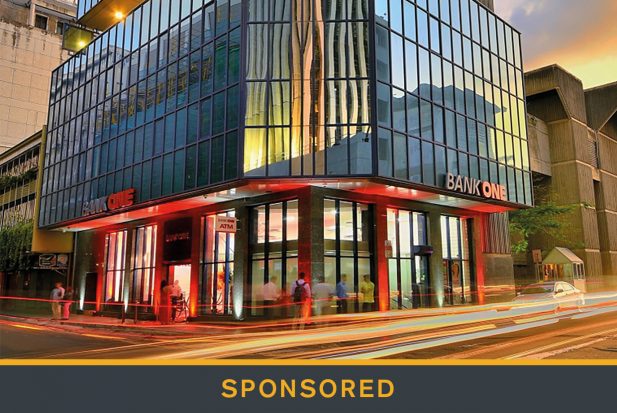
Bank One’s Carl Chirwa, Head of International Banking, provides an overview of the bank’s objectives and strategic partnerships.
Q: Bank One has the objective to become the best bank for investors to access Africa. What do you believe that investors in Africa are looking for from their banking partner?
Chirwa: In my experience, any bank can offer you a bank account. What investors are really looking for is a trusted advisor that allows them to achieve profitable business within Africa. Of course, a robust, secure and reliable transaction banking platform is key but, above and beyond that, investors are also looking for a banking partner with intimate knowledge of the sub-continent to assist in navigating the complex business operating environment across 53 diverse jurisdictions and multiple legal, tax, regulatory and geopolitical frameworks.
Bank One is well positioned to assist clients who are seeking to invest in Sub-Saharan Africa precisely because of our unique onshore and offshore capabilities. We are located offshore in Mauritius and our team is able to provide our clients with expert advice for investing into Africa from the comfort of a safe jurisdiction to help them ring-fence their capital flows into the continent. We also have the added advantage of our local network in East Africa, which can be leveraged as a safe destination for investments and upstreaming of dividends. Our deep understanding and knowledge of the region adds value to our clients’ investment decisions in a dynamic and challenging environment.
Q: How would you describe Bank One’s Africa strategy and footprint? To what extent is Bank One seeking to build new partnerships in Africa?
Chirwa: We are very privileged to have two large groups as shareholders: CIEL Finance Limited, a subsidiary of the CIEL Group, a Mauritian conglomerate with a significant footprint in Africa, and I&M Holdings PLC, a financial services group with a presence in Kenya, Rwanda, Tanzania and, more recently, Uganda. The combined footprint of our shareholders provides us with a physical presence in six countries in Africa, which no other local bank currently has. That is our unique value proposition. We are present both onshore and offshore, and this uniquely positions us to help our clients invest in Africa via the Mauritius jurisdiction, known for its superior governance, banking system and regulatory framework. We, then, downstream those investments into our clients’ chosen markets through our onshore network, with profits being channeled back through Mauritius. I call it the onshore/offshore value proposition.
In terms of our other strategic partnerships, we try to form partnerships with the top-tier banks in chosen markets. We have deepened relationships with development finance institutions (DFIs), and the African Trade Insurance Agency, which helps us enhance lending structures in the more challenging markets. We believe that in order to navigate effectively in Africa, we need to rely on the African DFIs. If you try to get funding outside of Africa, there is often a disconnection – they might not understand the difference between Mali and Malawi or Mauritius and Mauritania. You would be surprised at some of the comments we still hear from outside international institutions.
Our target market is Sub-Saharan African banks, which we know and represent, and are able to provide relevant products and services. As an offshore bank, we bring additional benefits to support African banks by leveraging our global networks and relationships. As Carl mentioned, with the support of our shareholders, CIEL Finance and I&M Holdings, we are present in many parts of Africa. We enjoy a mutually beneficial working relationship with our shareholders where each party leverages on its core strengths. We benefit from I&M and CIEL’s on-the-ground relationships and diligence, whilst they benefit from our capital, structured finance, custodian and cash management support.
In addition, Bank One has been increasing its coverage and credit appetite in West Africa where we have exposures to financial institutions in Nigeria, Ghana, Senegal and Côte d’Ivoire. We are grateful for the support of Amethis Investment Fund Managers in Côte d’Ivoire, who also form part of our shareholding structure through CIEL Finance.
Finally, Southern and Central Africa remain attractive to us too. We currently finance and service commercial and central banks in Malawi, Botswana, Namibia, South Africa, Angola and DRC, where we offer relevant solutions that might not necessarily be available from the international banks.
Q: When it comes to engagement with other banks in Africa, do you see any need for capacity building, and is this an area where Bank One can offer support?
Chirwa: Our strategy for Africa is focused on widening and deepening our lending and corresponding relationships with financial institutions. In short, we want to be the banker of banks in Sub-Saharan Africa.
In current times, compliance and know your customer is the prerequisite of the day. Against a backdrop of tighter AML regulatory framework internationally and the application of Basel II and III norms, whilst the African banks grapple with their own regulatory challenges, international banks have largely withdrawn their support for African correspondent banking structures. They are no longer lending aggressively into Africa and, in many cases, they are exiting the markets outright. Just as we have seen a few years back with HSBC and Barclays, nowadays the likes of Citibank and Standard Chartered are also de-risking from the region. As a result, this situation has created an opportunity for Bank One to step in and fill the gap for these African commercial and central banks and provide lending and trade finance solutions, as well as cash management support as a custodian for their FX and some of their local currency positions.
As Bank One continues to expand its activities across Africa, it is getting good visibility in some of the markets for the product and services that it is able to provide. We have successfully deepened our relationships with several central banks and have been able to provide currency swap solutions for their liquidity management. To date, we have on-boarded several banks in Southern, Central and West Africa and are getting new requests as we increase our visibility. We are translating these synergies to develop a Sub-Saharan Africa ‘Star Alliance of Network Banks’.
Our goal is to develop cross-selling opportunities where we first refer proposals within our Alliance of Network Banks for trade finance, custody services, and treasury products whilst providing structuring skills, risk-sharing opportunities, competitive US dollar liquidity and offshore cash management capabilities. We are quite excited about the growth prospects of this line of business for Bank One.
It also adds a development angle to our commercial banking activities. We are able to help countries with challenges to balance their seasonal fluctuations in terms of FX availability and help stabilise their economies. That is typically a mandate for the development banks, but their focus is on large infrastructure projects, which leaves the short-term liquidity management for us. We connect and bridge the gap between development and commercial banking, and in so doing, achieve unique hybrid solutions.
Q: Bank One was appointed by the African Export-Import Bank (Afreximbank) to act as one of its Trade Finance Intermediaries (TMI) in Mauritius in August 2020. What can you tell us about this partnership with Afreximbank?
Chirwa: Our relationship with Afreximbank spans a number of products and initiatives. As a TMI in Mauritius, Bank One coordinates and works closely with Afreximbank in an agency capacity to support all its banking activities. It relies on us for groundwork, market intelligence and due diligence, as well as custodian services where we manage and monitor specific facilities on its behalf.
Furthermore, we partnered with Afreximbank through its Trade Facilitation Programme (AFTRAF) to increase our financial institutions lending and trade services activities in Sub-Saharan Africa.
Lending to financial institutions across Africa also forms part of the mandate for Afreximbank and DFIs generally, but they cannot do it alone. DFIs are, in fact, inclusive institutions whereby the more commercial banks work in unison with them, the more beneficial it is for the entire continent.
Bank One is an extension of that particular mandate for Afreximbank. In partnership, we are looking at jointly taking on exposure and supporting commercial banks in Africa that meet our lending criteria. Through this alliance with Afreximbank, we are able to provide numerous products, be it guarantees, irrevocable reimbursement undertakings or other types of credit enhancement, allowing us to increase our lending capacity while reducing the credit risk. Bank One and Afreximbank will further collaborate to provide solutions for commercial banks that are practical, less costly and Africa-driven.
Q: With the close support of major DFIs, Bank One is working towards a systematic approach in the form of an Environmental & Social Management System. How will this initiative help to embed the sustainability agenda into the bank’s operations?
Chirwa: Proparco and DEG, who we are working with, are also part of our long-term funders and they have helped in terms of capacity building at the bank. We have also recently on-boarded a sustainability manager, Sanjeeve Jhurry, which clearly shows that we are taking sustainability seriously and are decidedly focused on building sustainability within our operations. All the lending that we do, given our commitments to Proparco, DEG and IFC, must have a sustainability component. For us it just makes good business sense that whatever lending or activities we do are environmentally and socially responsible.











